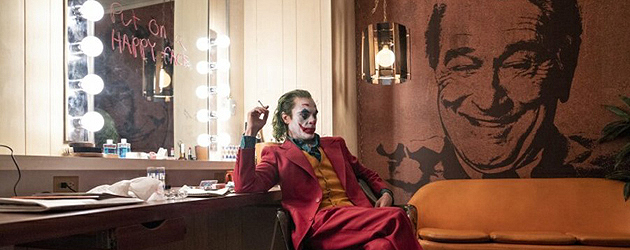Mark Friedberg

AS: The people you’ve brought together?
MF: And the young people that I’ve been able to help the way that Santo Loquasto opened the door open enough for me to get through it. If he hadn’t done that I don’t know what I’d be doing. Driving a cab? That’s all it took. I have a rule that if anybody asks I’ll meet with them. Any young person who wants to discuss their career. I’ll do that. Because it’s terrifying. And nobody will help anybody. It’s so competitive. That’s the part I’m most excited about, young talent.
AS: How different is working on a series from working on movies?
MF: Well, I’ve done Mildred Pierce and this one, Barry Jenkins’ Underground Railroad. Mildred Pierce was just like working on a movie. This one is like you’re working on a movie but you’re working twice as fast every day. You’re covering a lot more territory. More pages each day and for longer. So you’re working twice as fast for twice as long. So it’s pretty intense. It’s a lot of story to tell. It’s like making three features at the same time. And we’re not like, Oh, because it’s TV we’ll do it less quality. That’s not the Barry Jenkins way and not the way with this material. We’re making it as if it’s an extraordinary feature.
Technically it’s not that different. But six one hours is a very interesting format. Feature cinema is essentially a short story. It doesn’t have the ability in the way that a novel does to divert course. To jump off plot line. To be in a chapter setting. What I’m not that interested in personally is open-ended story-telling. We’ll keep making this series as long as you keep watching it. We’ll just keep trying to think up another plot so you’ll keep watching. I don’t mean to disparage it. It’s just not what I want to do. As a designer I want to be able to know what the end is, to help me understand what the beginning is. They relate- it’s an arc, it’s a journey. It goes from here to there and therefore the transitions or the comparisons, those things all matter. They are all vital to the telling of the story.
I was hesitant about the limited series thing just because I’m a movie snob. But also because I’m a child of the 70’s and cinema meant something to us. TV meant F Troop and the cinema meant something that you could only experience communally and something that made you think and feel and talk. Yes, for sure it was meant to be commercial but it was not only meant to be commercial. It was meant to be important. And I’m defined by the movies that I saw as a young person in that time. This new world is something that I’m adjusting to. My kids think I’m out of my mind. They don’t distinguish one hour, two hours, ten seasons. And they’ll also sit down and watch ten seasons of something over two days.
AS: What direction do you see the field of production design going in? There’s virtual reality now where you can be inside the experience…
MF: I can’t do it because I can’t get the damn things over my glasses!